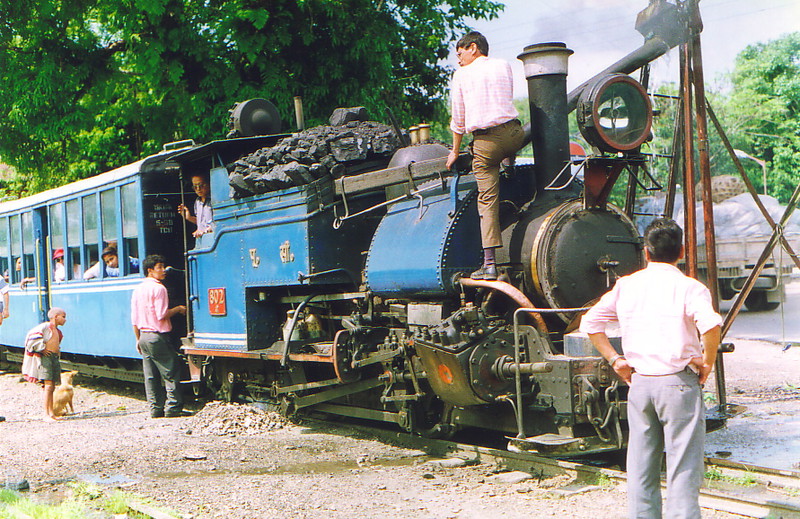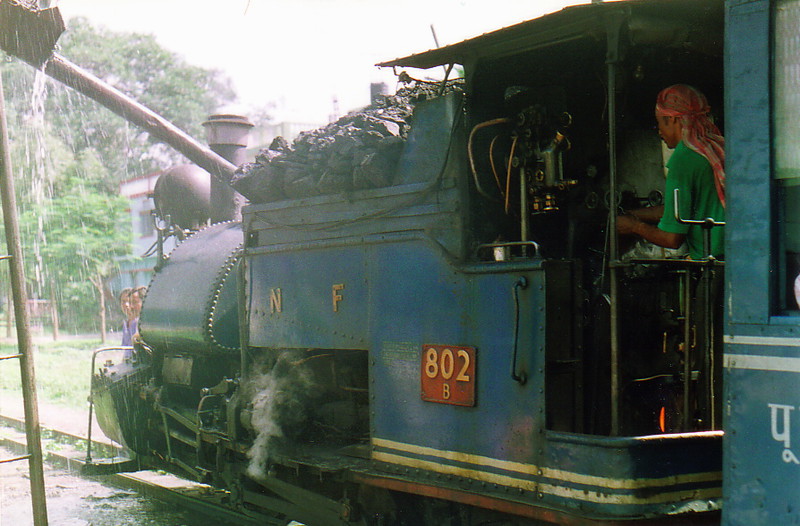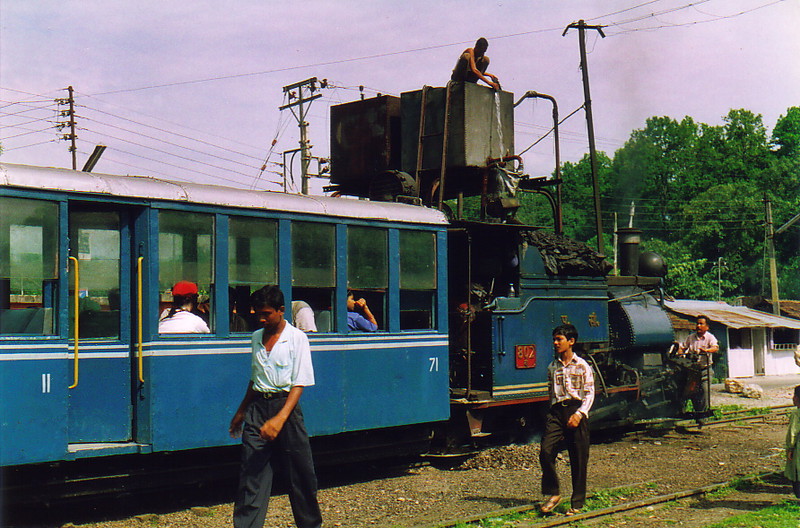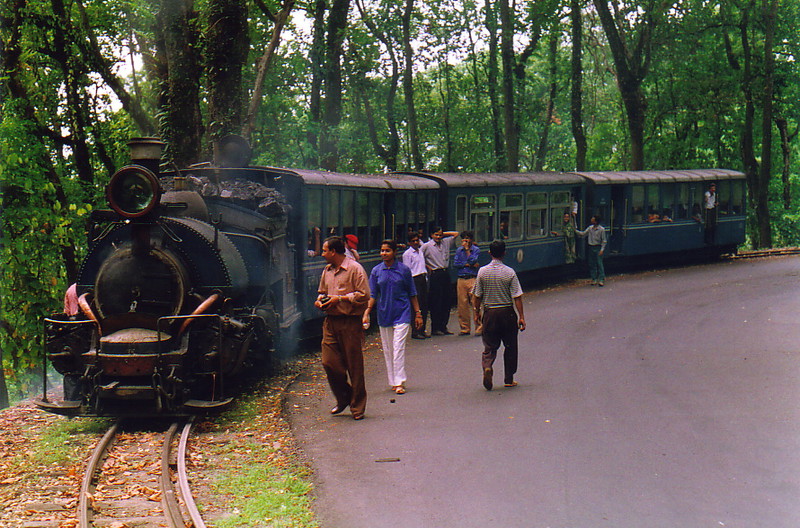
Noel Gallagher once wrote, 'These are crazy days but they make me shine,' and he was spot on; India is crazy, but it sure as hell is making me shine. Just one example is India's train network, which is delightfully bonkers, and the train into Darjeeling is a case in point. There are no traffic lights on the railway line from Siliguri to Darjeeling; instead, a lone man stands in the middle of the humid jungle waving a red flag. This sums up the whole Toy Train experience rather well.
For the train from the plains up to the hill station of Darjeeling is no ordinary train; it's a tiny steam train locally known as the Toy Train. Taking eight timetable hours to screech its way up the 80km track to the most famous tea-producing area in India, the journey is a combination of ancient technology and the seemingly archaic Indian way of doing things; for example, at one point we sat on the tracks for what felt like ages, waiting for a group of five workmen to mend the track ahead of us, which had washed away in the rains.

The name 'steam train' is fairly misleading, too; looking at pictures of classic locomotives belching white from their chimneys, I used to think that the train was throwing out clouds of steam, but then my science lessons taught me that it was mostly smoke from the boiler. The Toy Train to Darjeeling proves this point; as the train toils its way up the mountains, it leaves a trail of black smoke in the sky, and at every corner bits of hot coal ash waft into the carriages, covering people and packs in a fine layer of soot and pin-pricking their skin with dissipating heat.
But this doesn't deter from a delightful journey. When I first heard the distinctive chugging of the steam engine – 4/4 time, one repeated bar of two forte treble crochets and two piano bass crotchets, played at a varying tempo depending on the gradient – I was instantly reminded of Thomas the Tank Engine and the Fat Controller, but somehow this wasn't quite right. Thomas and his friends are huge engines, dwarfing the cute stick men as they stand statically though Ringo's narration, but a more accurate analogy might be Ivor the Engine, as the Toy Train is, well, much more toy-like than Thomas; and although the hilly scenery around Darjeeling isn't quite the Welsh valleys, I could almost imagine the dragons sitting on the engine and hatching their babies.

I very much doubt that Ivor came across a great deal of Indian traffic, though. The railway follows the road for the main part1, crossing it fairly regularly, and therein lies the problem: trains have brakes that take ages to work, and Indian truck drivers don't seem to be aware that their vehicles have brakes in the first place, so the prospect of train meeting truck on the barricade-free crossings is a real one. Add in the thrill of a narrow (2 ft) gauge train lurching and bumping its way through the undergrowth, and you have an experience that is as close to luxury train travel as Indonesian ferries are to expensive cruises.
Another thing that hardly ever happens in the books is the train running out of water, but this being India it wasn't long before we ground to yet another halt, and this time we stayed there. In a classic engineering solution to the problem of getting a train up a severely steep hillside, the track is full of switchbacks where the train has to zigzag backwards and forwards, gradually ascending the hill by judicious use of points (each changed by a lonely old man hiding from the rain in a decrepit old brick house). It wasn't, then, much of a surprise that after a few hours on board we'd yet again backed into a dead end and stopped.

After 15 minutes I stuck my head out of the window and tried to see why we still weren't moving. The fact that there was no engine may have had something do with it, but nobody had thought to inform the passengers that the train had run out of water and needed to go off for a refill; we were already running late from the work on the track and it was quite obvious that we were going nowhere.
Luckily the siding was still close to the road, so along with half the train I jumped down onto the track, walked down to the road and eventually hailed a bus. The heavens opened, I got to Darjeeling before long, and that was the Toy Train experience. 'Not to be missed' was the guidebook's accidentally accurate summary; 'not to be trusted' would perhaps have been more accurate.
Crazy days indeed.
1 Which means you pass wonderful signs such as, 'If you want to donate blood, do not do it on the road, donate it in the blood bank,' 'It is better to be 15 minutes late in this world than to be 15 minutes earlier in the next,' and, rather worryingly, 'Love thy neighbour... but not while driving.' It's a pity nobody takes a blind bit of notice.